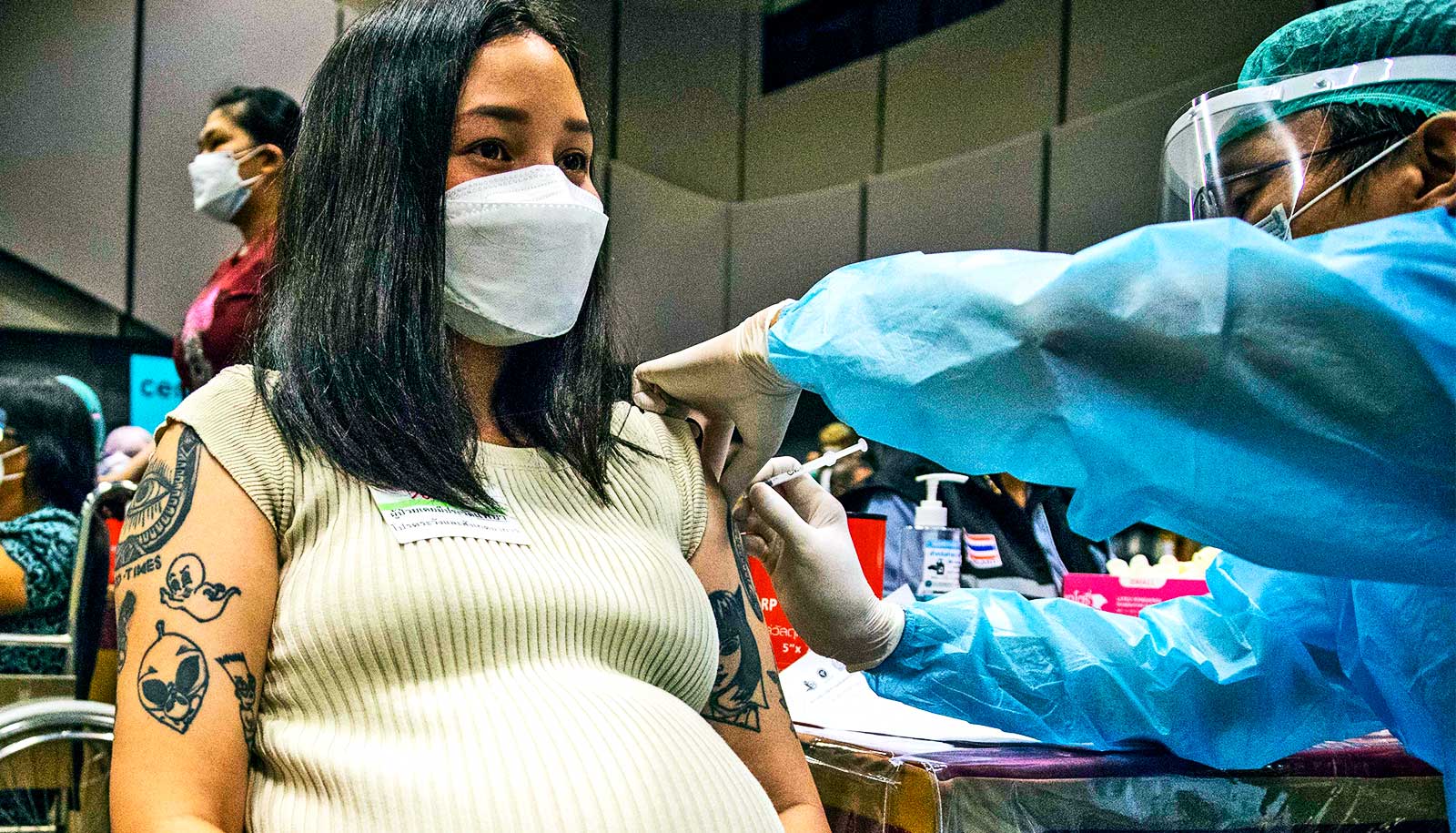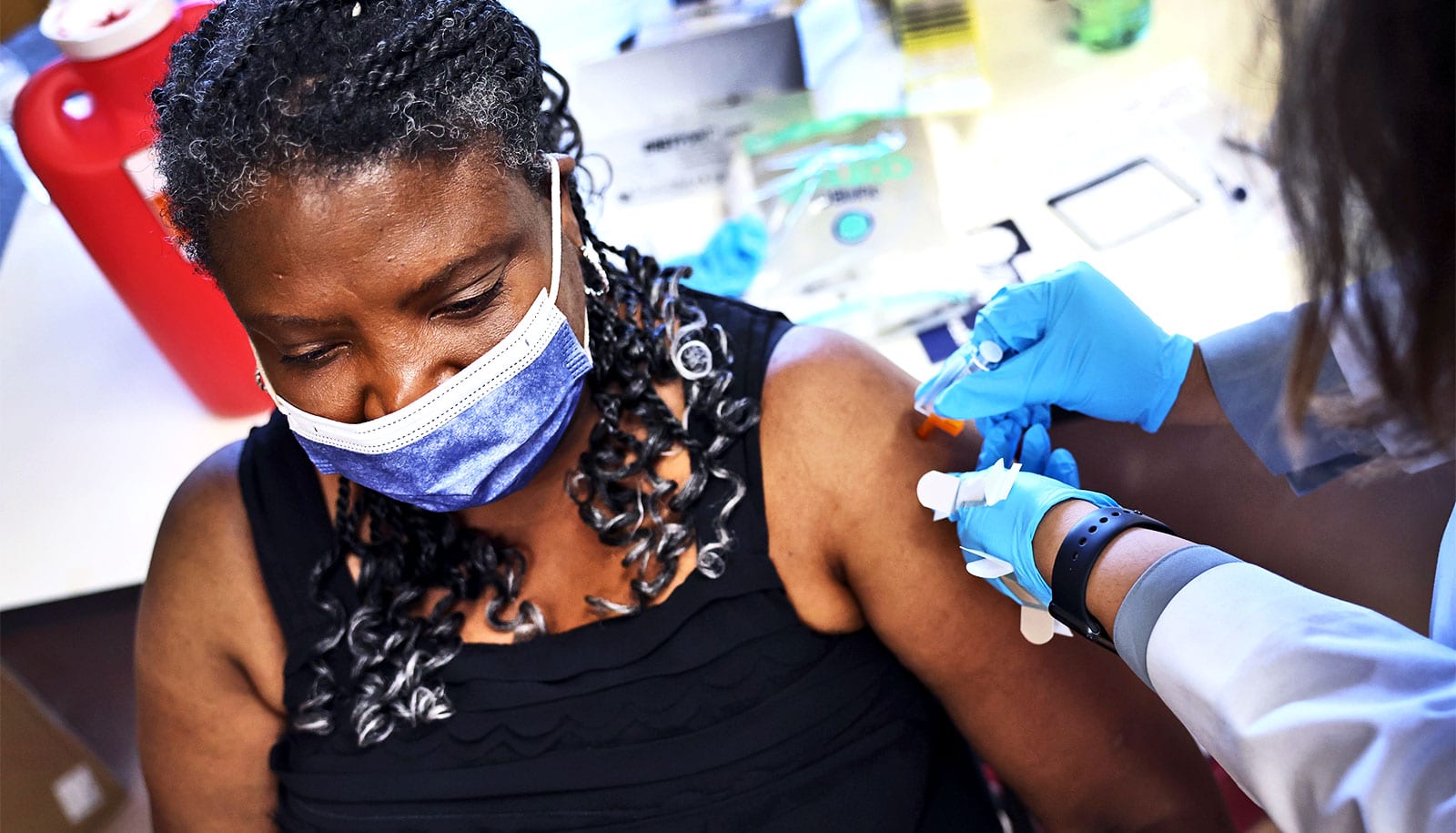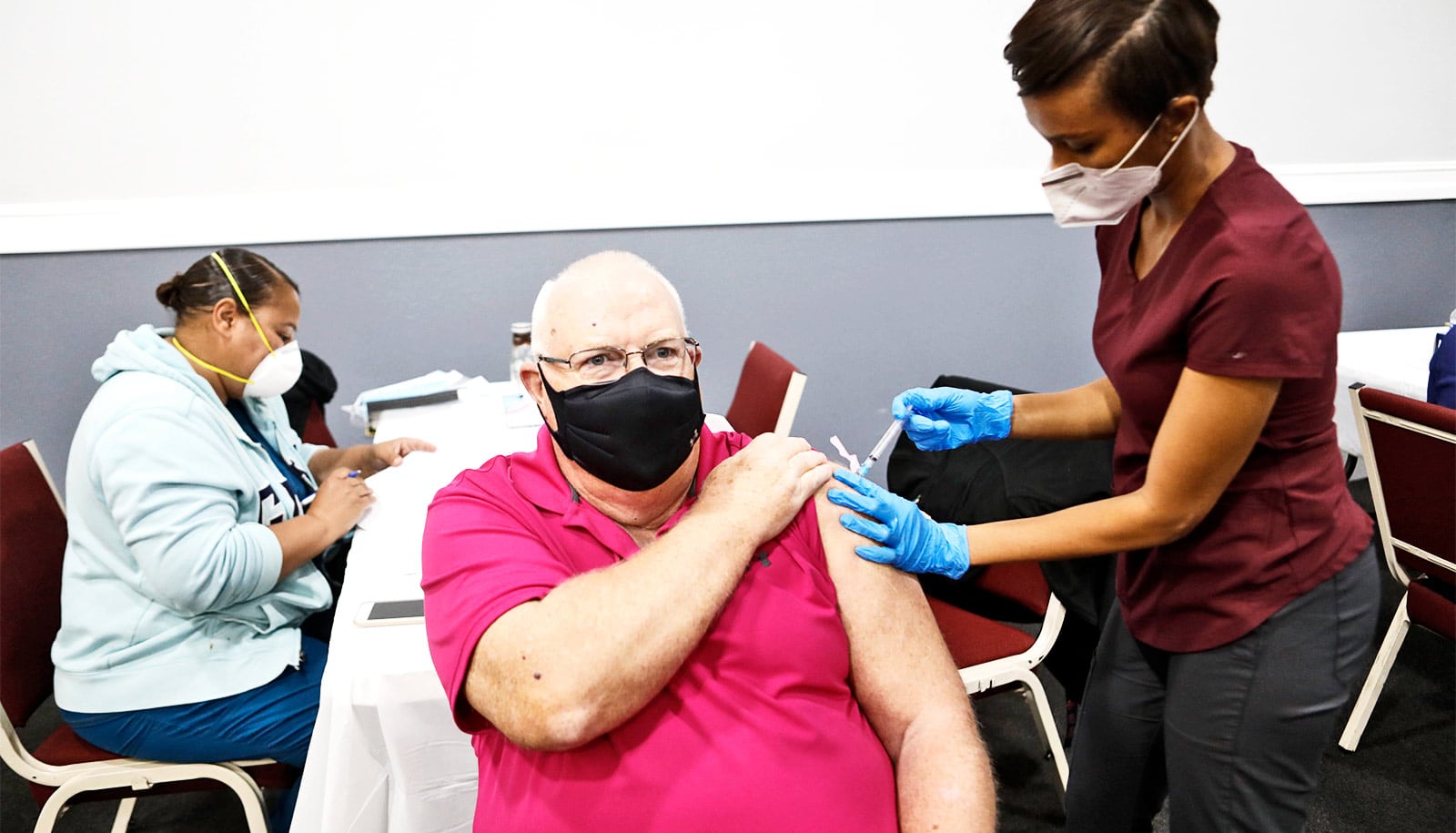Boosters are key to protecting pregnant individuals and newborns against the worst effects of COVID, according to a new study.
Doctors now know that pregnancy doesn’t make it more likely that a person will become infected with SARS-CoV-2—but it does increase the chance of becoming severely or even fatally ill.
Vaccinations have proven to both powerfully counter severity of illness among mothers to be and prevent the hospitalization of their infants for up to six months after birth. But how long does this protection last?
The study in Nature Communications found that patients with a specific cocktail of COVID exposure—vaccination, up-to-date boosters, and previous infection—had the highest level of neutralizing antibodies against SARS-CoV-2 and its variants, which also provided the strongest immunological shield for their babies.
The findings are important because the latest, highly mutated variant recently spotted in Michigan will hardly be the last, says co-senior author Theodora Hatziioannou, a research associate professor at Rockefeller University.
“It will likely be important for prospective mothers to update their immunity through new vaccine strains to provide maximum possible protection to their infants,” she says.
Collaborating with research partners at Weill Cornell Medicine (WCM), Hatziioannou and her colleague Paul Bieniasz, head of Rockefeller’s Laboratory of Retrovirology, analyzed spike-binding antibodies in 4,600 pregnant patients, of whom 2,999 had been vaccinated against COVID, infected by COVID, or both. The remaining 1,601 had been neither infected nor vaccinated.
The patients who’d been previously infected and also had a full series of vaccinations and updated boosters had the highest antibody levels persisting over time, with the most common antibody being detectable nearly a year after the patient’s last vaccine dose. Their antibodies were also more effective at neutralizing viral infectivity.
They also analyzed antibodies found in the umbilical cord blood of patients’ newborns, and discovered that antibody prevalence in infants highly correlated with levels found in the mother’s blood. This is the only immunity against the virus that newborns have.
Senior coauthor Yawei Jenny Yang, a clinical assistant professor of pathology in obstetrics and gynecology at WCM, notes that some pregnant patients hesitate to get vaccinated or boosted, believing they no longer have to worry about COVID because they’ve been previously vaccinated, infected, or both.
But that’s not the case. “We show that even if you’ve had a history of infection, by getting boosted you are in the population that has the highest level of antibodies in the mom, and also the highest level of antibodies in the baby,” says Yang.
Source: Rockefeller University



